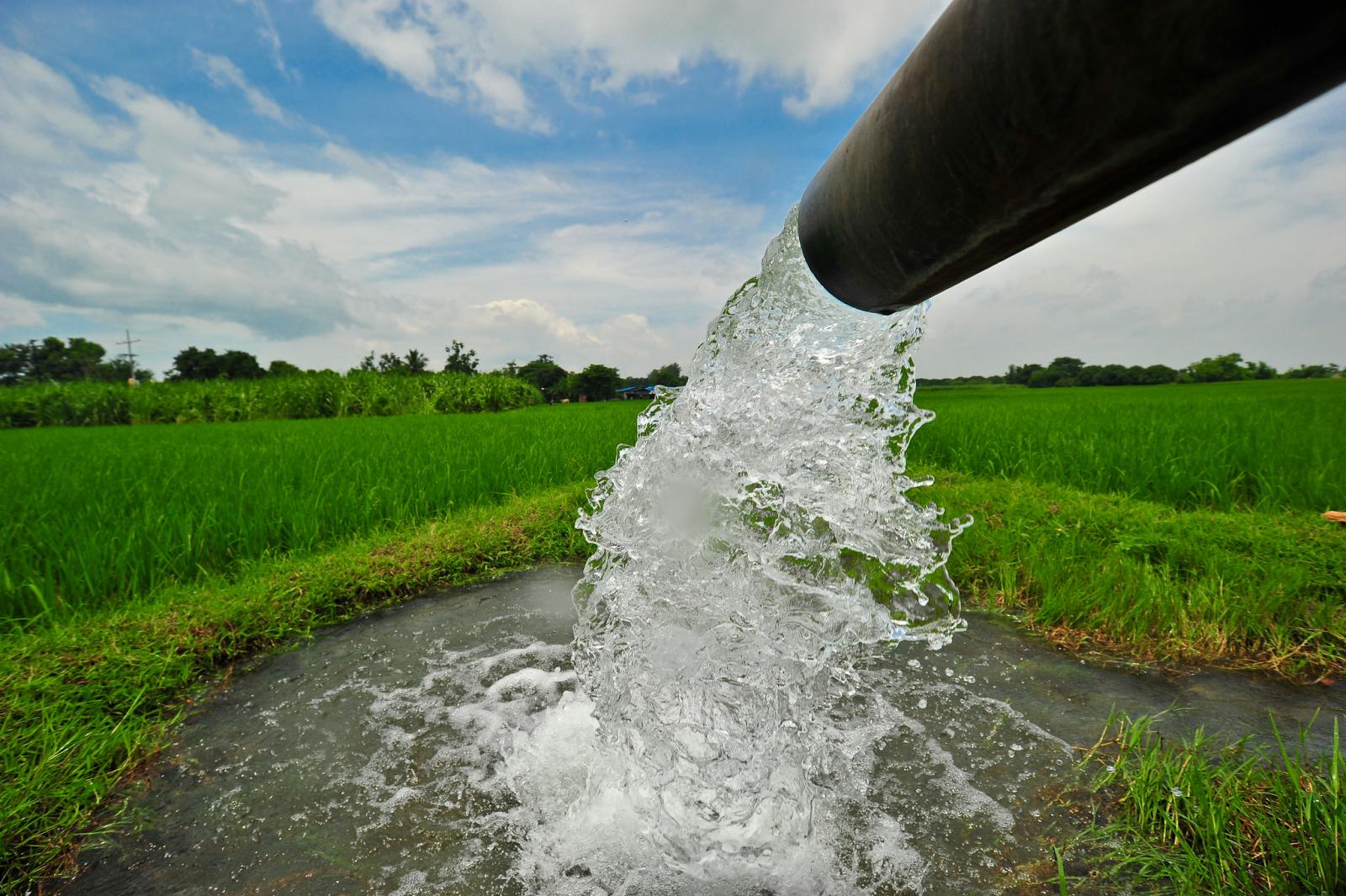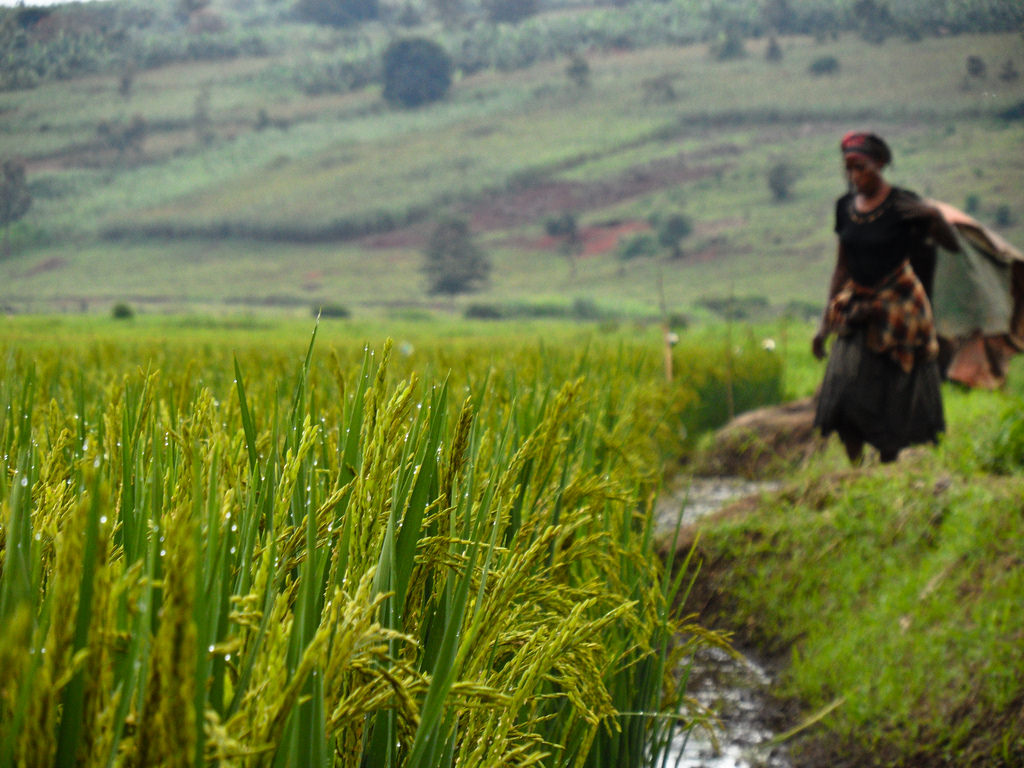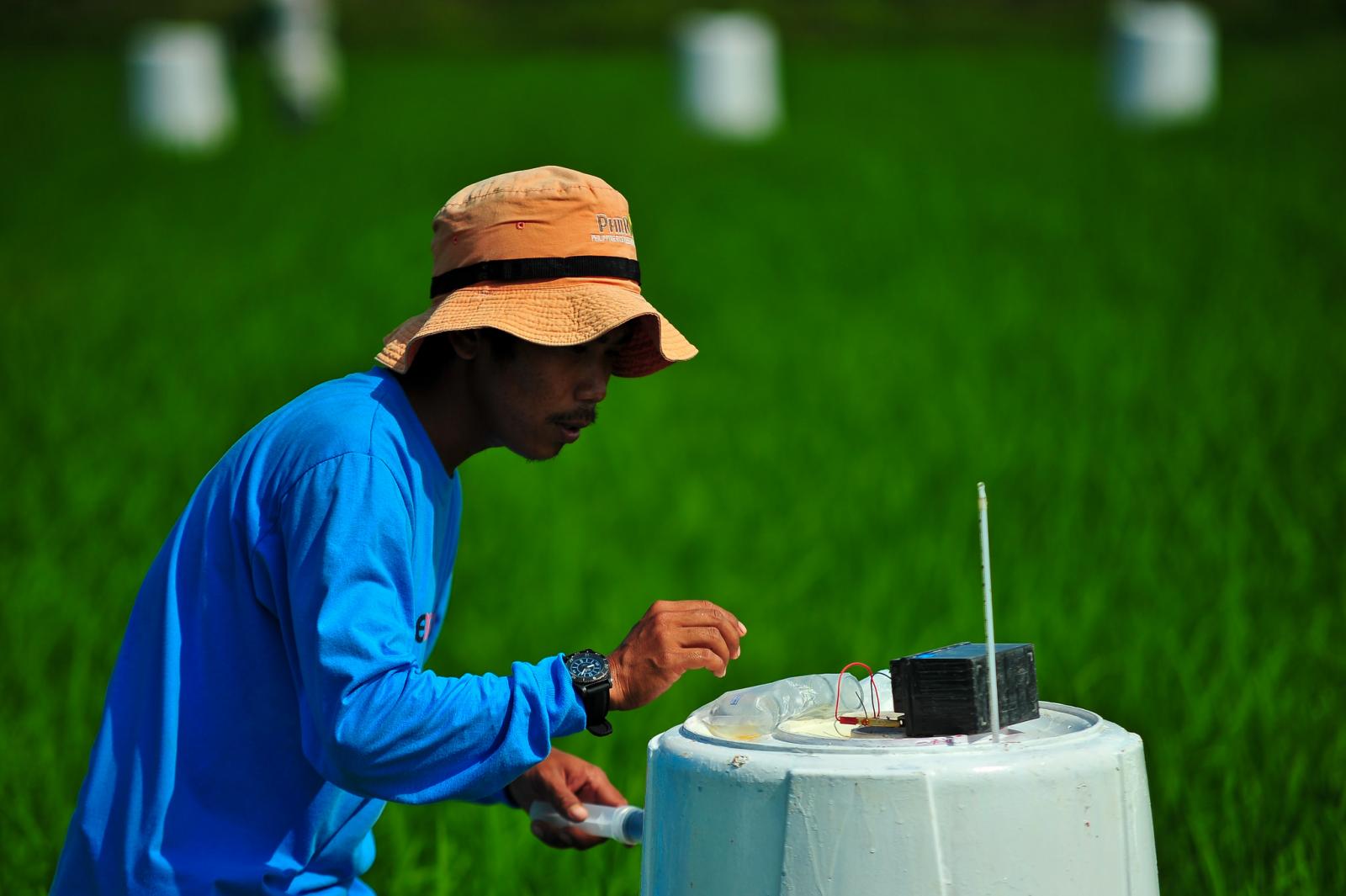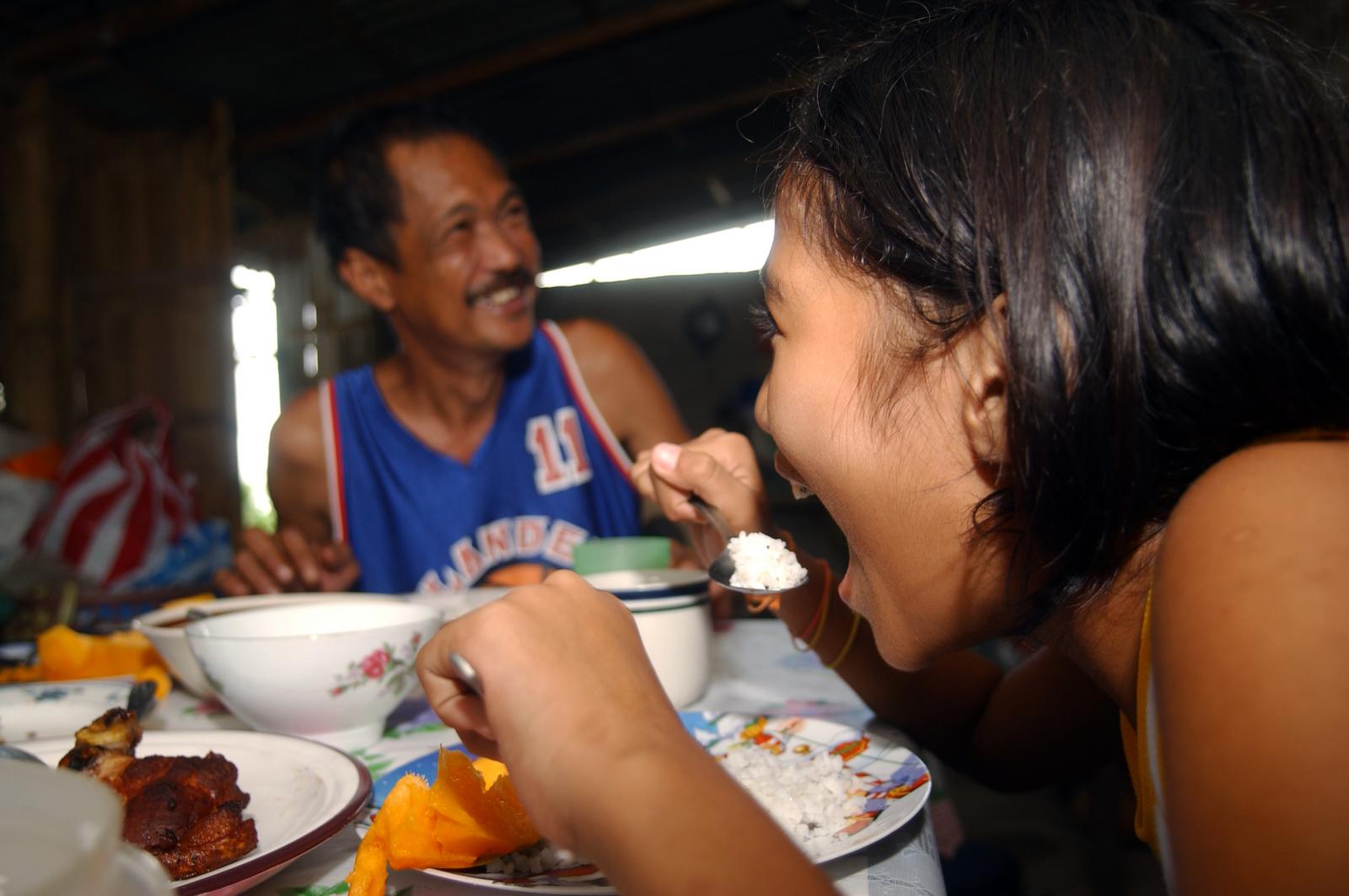Achieving food security
Food security is no longer just about combating hunger. In its truest sense, food security is only achieved when rice growing countries are also producing nutritious and high-quality rice to satisfy the rise in demand and nutritional needs of rice-consuming populations.
IRRI works closely with research networks, governments, development sector, private sector, and farmer communities to ensure that our approach to developing an abundant supply of healthier rice varieties is tailored such that it reaps the best returns for everyone involved.
Learn more about IRRI’s success stories on increasing food security.

Stewards of a Healthier Planet
How do we feed the world without destroying it?
We do more, with less.
By influencing the people we work with to deploy smart crop management practices that optimize inputs like fertilizer, water, and other equally important resouces in farm management, we significantly reduce greenhouse gas emissions from rice fields.
Find out how else are we trying to put this into action.

Engaging Women
Women farmers play a significant part in rice rice production. IRRI also acknowledges that increased participation of women in agricultural research for development and extension will accelerate the realization of development goals, such as reducing poverty and addressing food security. IRRI is working with governments and partners to empower them and strengthen their role in rice production, research, and extension with the aim of narrowing the gender gap for women farmers and women scientists.
Tackling climate change
Over the years, a wide range of institutions, including IRRI, have embarked in diverse climate change initiatives and projects that deal with adaptation and mitigation in the rice production system. The Institute has defined a coherent research portfolio on rice and climate change emphasizing on three areas: adaptation, mitigation, and policy. This sets rice production into the broader context of food supply and food security alongside socioeconomic issues, such as overpopulation and gender inequality.
Reducing poverty
Reducing poverty is one of IRRI’s primary goals. Through the coordinated efforts of IRRI and our more than 900 partners worldwide, we have made headway toward achieving this seemingly insurmountable objective.
The Australian Centre for International Agricultural Research (ACIAR), for instance, reported that IRRI’s work resulted in rice yields of up to 13% between 1985 and 2009 across three Southeast Asian countries.
Meanwhile, the Swiss Agency for Development Cooperation (SDC) reported that the US$12 million investment in rice research by the Swiss government has yielded $70 million in benefits to rice farmers and national economies in four Asian countries.
Making rice healthier
More than half of the world’s population relies on rice for most or their entire calorie needs because they cannot afford or do not have access to a full range of nutritious food such as fruits, vegetables, and foods from animal sources (e.g., meat, dairy products, and eggs). As a result, lack of iron, zinc, and vitamin A has become prevalent micronutrient deficiencies in rice-consuming countries. The cost of these deficiencies in terms of lives and quality of life lost is enormous, and women and children are most at risk.
Healthier rice varieties have the potential to reach many people because rice is already widely grown and eaten. IRRI is developing rice varieties that have more iron, zinc, and provitamin A content to help people get more of these important micronutrients. These healthier rice varieties can complement current strategies to reduce micronutrient deficiencies.



.jpg)
